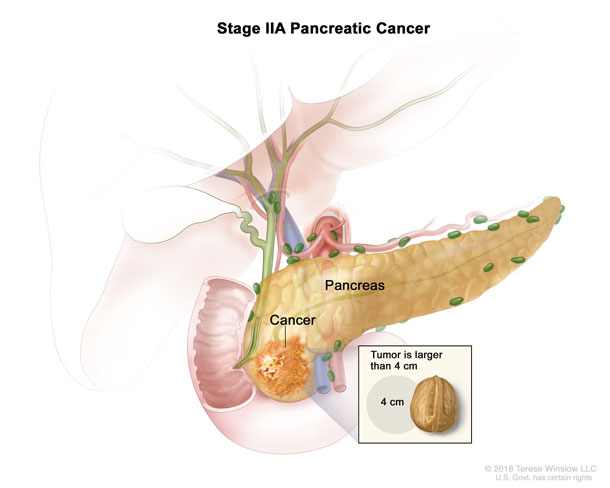| New from NCI |
| Changing Chemotherapy May Help Improve Survival for People with Early Pancreatic Cancer |
 |
|
Results from two clinical trials are expected to improve the outlook for people with early-stage pancreatic cancer that can be treated with surgery. Learn about the treatment changes that were tested in these studies. |
| Can Age Affect Response to Immune Checkpoint Inhibitors? |
 |
|
A new study has linked age with how well patients with melanoma responded to treatment with immune checkpoint inhibitors. Experiments in mice suggest that the response pattern may be due to an age-related shift in the kinds of immune cells in tumors. |
Video—Immunotherapy: How the Immune System Fights Cancer
Immunotherapy is a type of cancer treatment that helps a patient’s immune system fight cancer. Learn about three types of immunotherapy: nonspecific immune stimulation, T-cell transfer therapy, and immune checkpoint inhibitors. |
| Do Frequent Follow-Up Tests Benefit Survivors of Colon and Rectal Cancers? |
 |
|
Two studies examined the impact of more frequent follow-up testing for cancer recurrence in colorectal cancer survivors. Learn whether frequent testing helped patients in the studies live longer. |
Approval Expanded for Venetoclax in Chronic Lymphocytic Leukemia
The Food and Drug Administration (FDA) expanded the approval of venetoclax (Venclexta) for people with chronic lymphocytic leukemia to include those whose cancer has progressed after previous treatment, regardless of whether their cancer cells have changes in the 17p gene. |
NExT: Advancing Promising Cancer Therapies from the Lab to Clinical Trials
Learn about the NExT program. NCI operates this program, working with researchers and top scientific experts to advance promising or novel therapies from the earliest stages of research to clinical trials in people.
|
| PDQ Summary Updates |
Oral Cavity, Pharyngeal, and Laryngeal Cancer Prevention
As the updated title suggests, our PDQ summary on prevention of oral cavity and oropharyngeal cancers now includes information on laryngeal and pharyngeal cancer.
|
| Drug Information Updates |
Bevacizumab for Ovarian Cancer
We’ve updated our bevacizumab (Avastin) drug information summary to reflect FDA’s expanded approval in ovarian, fallopian tube, and primary peritoneal cancer. The drug is now approved for use in stage III and stage IV disease. The previous approval was limited to disease that recurred after earlier chemotherapy. |
Pembrolizumab Use in Cervical Cancer and Non-Hodgkin Lymphoma (NHL)
We've updated our drug information summary on pembrolizumab (Keytruda). The drug was recently approved for use in certain patients whose cervical cancer got worse during or after chemotherapy. The approval was also expanded for use in certain patients with primary mediastinal large B-cell lymphoma (a type of NHL) that did not respond to treatment or relapsed after other treatments. |